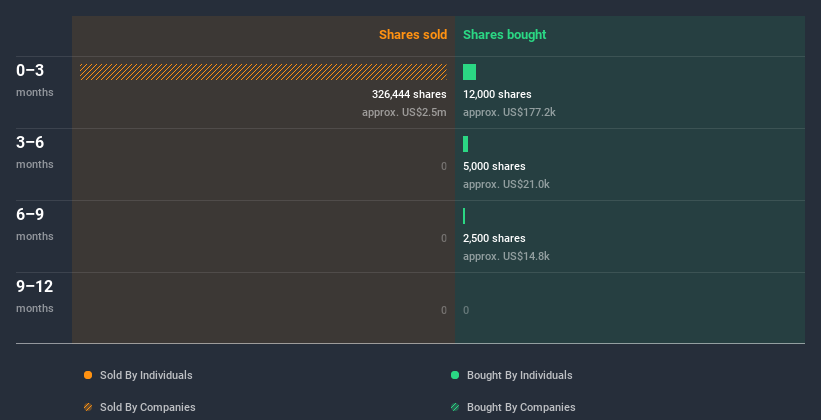Are Insiders Buying Educational Development Corporation (NASDAQ:EDUC) Stock?

It is not uncommon to see companies perform well in the years after insiders buy shares. The flip side of that is that there are more than a few examples of insiders dumping stock prior to a period of weak performance. So before you buy or sell Educational Development Corporation (NASDAQ:EDUC), you may well want to know whether insiders have been buying or selling.
Do Insider Transactions Matter?
It is perfectly legal for company insiders, including board members, to buy and sell stock in a company. However, most countries require that the company discloses such transactions to the market.
We don't think shareholders should simply follow insider transactions. But logic dictates you should pay some attention to whether insiders are buying or selling shares. For example, a Harvard University study found that 'insider purchases earn abnormal returns of more than 6% per year'.
See our latest analysis for Educational Development
The Last 12 Months Of Insider Transactions At Educational Development
The Independent Director Joshua Peters made the biggest insider purchase in the last 12 months. That single transaction was for US$177k worth of shares at a price of US$14.77 each. That means that an insider was happy to buy shares at around the current price of US$14.83. While their view may have changed since the purchase was made, this does at least suggest they have had confidence in the company's future. If someone buys shares at well below current prices, it's a good sign on balance, but keep in mind they may no longer see value. Happily, the Educational Development insiders decided to buy shares at close to current prices.
In the last twelve months Educational Development insiders were buying shares, but not selling. The average buy price was around US$10.92. To my mind it is good that insiders have invested their own money in the company. But we must note that the investments were made at well below today's share price. You can see a visual depiction of insider transactions (by companies and individuals) over the last 12 months, below. By clicking on the graph below, you can see the precise details of each insider transaction!
There are always plenty of stocks that insiders are buying. So if that suits your style you could check each stock one by one or you could take a look at this free list of companies. (Hint: insiders have been buying them).
Educational Development Insiders Bought Stock Recently
Over the last three months, we've seen significant insider buying at Educational Development. We can see that Independent Director Joshua Peters paid US$177k for shares in the company. No-one sold. This makes one think the business has some good points.
Insider Ownership of Educational Development
For a common shareholder, it is worth checking how many shares are held by company insiders. Usually, the higher the insider ownership, the more likely it is that insiders will be incentivised to build the company for the long term. Insiders own 24% of Educational Development shares, worth about US$30m. We've certainly seen higher levels of insider ownership elsewhere, but these holdings are enough to suggest alignment between insiders and the other shareholders.
So What Does This Data Suggest About Educational Development Insiders?
The recent insider purchase is heartening. We also take confidence from the longer term picture of insider transactions. Given that insiders also own a fair bit of Educational Development we think they are probably pretty confident of a bright future. So these insider transactions can help us build a thesis about the stock, but it's also worthwhile knowing the risks facing this company. Case in point: We've spotted 3 warning signs for Educational Development you should be aware of.
Of course, you might find a fantastic investment by looking elsewhere. So take a peek at this free list of interesting companies.
For the purposes of this article, insiders are those individuals who report their transactions to the relevant regulatory body. We currently account for open market transactions and private dispositions, but not derivative transactions.
This article by Simply Wall St is general in nature. It does not constitute a recommendation to buy or sell any stock, and does not take account of your objectives, or your financial situation. We aim to bring you long-term focused analysis driven by fundamental data. Note that our analysis may not factor in the latest price-sensitive company announcements or qualitative material. Simply Wall St has no position in any stocks mentioned.
Have feedback on this article? Concerned about the content? Get in touch with us directly. Alternatively, email editorial-team@simplywallst.com.

 Yahoo Movies
Yahoo Movies 

